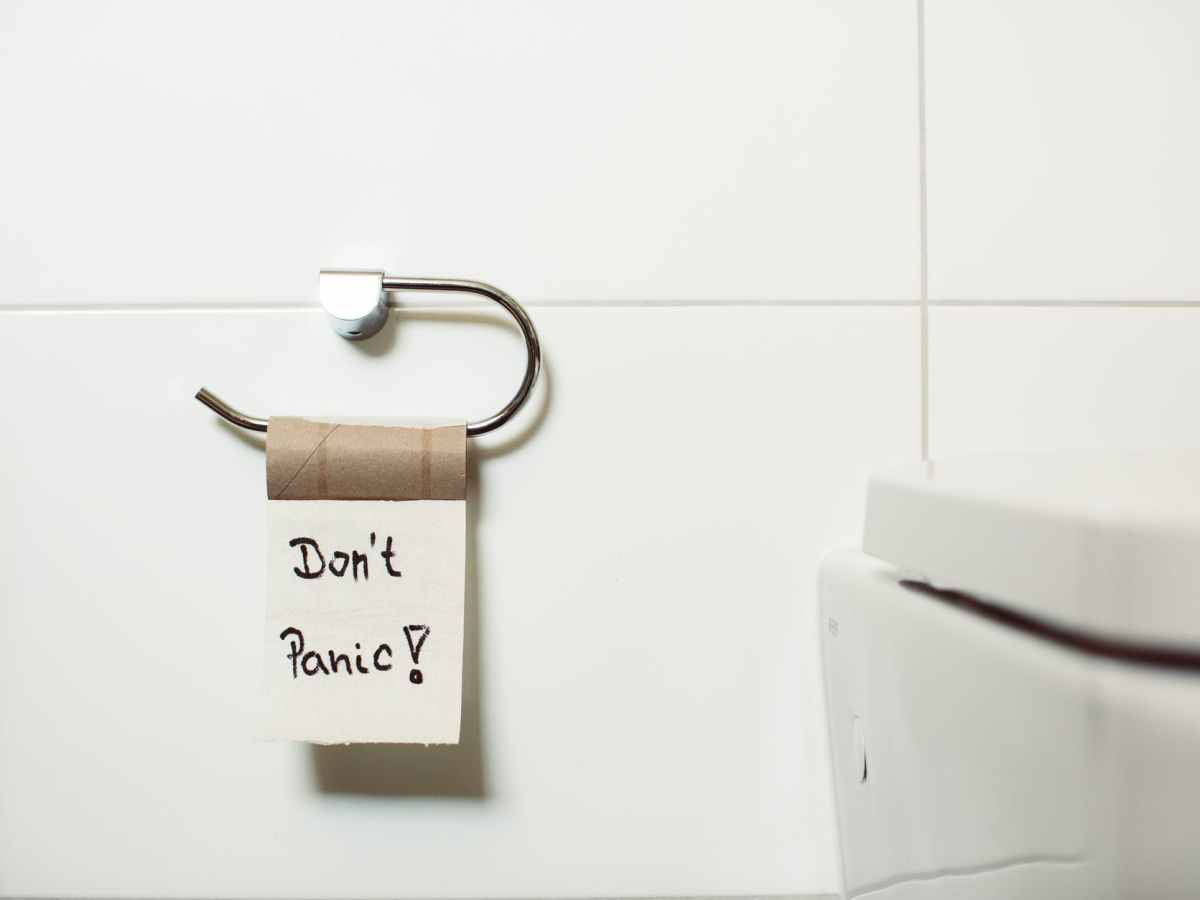Gosh, this is a fine line… Especially in the patients I regularly see. A colleague and I often say, “If you have any more water, you’ll die. If you don’t have any more water, you’ll die.” This is actually a frequent education topic that I cover with patients. Scary? Yes, but true. So, why is a Physical Therapist going to talk to you about dehydration and water intake? I cannot even begin to explain to you in any short way how important this is to my DAILY practice.
Symptoms of dehydration include:
- dizziness
- light headedness
- low blood pressure
- orthostatic hypotension
- increased thirst
- fatigue
- confusion
- falls
- urinary tract infections
- incontinence
- lack of sweating (in severe cases)
- loss of consciousness (in severe cases)
- cardiac arrhythmias (in severe or chronic cases)
- loss of thirst (in severe cases)
- the list goes on…
I treat all of those things as symptoms of other conditions and some in isolation. I bet you do, too!
Acute, chronic, or severe dehydration results in hypovolemia, which means that your body doesn’t have enough volume (blood volume) to support normal function. Guess what, folks? Blood pressure is a function of blood volume. So, if you lose blood volume, you will also lose blood pressure. When you lose blood pressure, your heart rate has to increase to make up for the loss in cardiac output to keep you going. This results in vitals findings that include a low blood pressure and an elevated heart rate. This is part of the discussion around hemodynamic stability, one of my favorite things to talk about.
For example, I’ve had a patient just recently that demonstrated blood pressures at rest 96/54 mmHg and a heart rate of 104 bpm. Sometimes, you don’t see the change in blood pressure and heart rate at rest, but you may see it with activity. The other day, I was teaching an exercise test and our model had resting blood pressure of 120/86 mmHg and a heart rate of 70 bpm. With ONE MINUTE of marching in place, her blood pressure was 130/90 and her heart rate was 50 bpm. She was also having cardiac arrhythmias that were not present at rest. It took ONE MINUTE. That’s it. And, just an FYI, this was NOT a patient. This was your standard run of the mill adult walking around doing their normal thing. This adult could be walking in to your clinic at any moment.
Why, you might ask, are so many of Doctor B’s patients dehydrated? Well, there are lots of reasons. I’m going to use this post to segue into a few other topics, but the gist of it is that they are sick. And when you are as sick as they are, drinking enough water is either difficult or not indicated. That’s right. You read that correctly. For some of my patients, drinking too much water is actually exactly their problem. You can read more about that here. But the REAL REASON that many of my patients are dehydrated is that I check for it. Simply because I check for it, I’ve significantly increased the number of dehydrated adults on my caseload. Just because someone is sick doesn’t mean they are dehydrated, but if you never check, you’ll never know.
Many of my patients have difficulty breathing. Many of them have COPD or some other form of lung disease. If it’s difficult to breathe at rest, getting up to get a drink of water is going to be pretty challenging, so many of them just don’t. For people who use supplemental oxygen, staying hydrated is even more important because their supplemental oxygen is very dry, even when using a humidifier, and causes cracks and bleeding in their nose. This causes discomfort and decreases compliance with their oxygen.

If you’ve read my posts on heart failure, including the post that covers the Rule of 2s in relationship to heart failure, you can understand how too much water can actually become a problem. For patients who manage chronic heart failure, their fluid restriction (typically of 2 liters of water per day) can make them fairly dry, especially in the beginning of their disease. They are used to drinking as much water as they need, but all of a sudden, we are telling them they have to ration it out over the course of the day. Initially, they have to adjust to this change so they have some time frame of mild orthostasis or other dehydration symptoms. Funnily enough, they usually do fine for a while, but then they get too good at limiting their fluid intake and they start to REALLY limit themselves. Some patients are proud to announce that they can only drink 1 liter of water per day… And Doctor B cringes… Even when they have a fluid restriction, it is still important to drink to the max of their restriction to ensure they stay hydrated enough to function.
Many of my patients are also incontinent. We will talk more about this later, but the solution many of them think they’ve discovered is that, if they drink less water, they won’t have to get up to use the bathroom as often (which is hard for them to do, or requires the assistance of another person and they don’t want to be a bother). Unfortunately, this results in these older, more fragile people becoming dehydrated which produces hypovolemia, which results in increased sodium and potassium concentrations in their body (hypernatremia/hyperkalemia), which results in altered mental status and/or heart problems. Unfortunately for them, drinking less water doesn’t actually reduce their urination frequency….
That’s right, decreased water intake doesn’t really decrease your urinary frequency. What actually happens is that your urine becomes more concentrated in your bladder. This concentrated urine becomes a bladder irritant which actually increases the frequency of feeling the need to go! This is especially true of those middle-of-the-night trips to the bathroom that we all know result in falls. People stop drinking water an hour or two before bedtime so they won’t have to get up to use the bathroom at night. But, darn it, that’s just not how it works. Now they will actually be getting up more often to use the bathroom because they are getting dehydrated before bed.

Let’s factor in how often urinary incontinence co-occurs with chronic diseases, especially those of the respiratory system. You don’t have to go out and do your own research, I’ll just tell you: It’s pretty much every time. My patients often have to cough to clear secretions, because their throat is too dry, or because they have swallowing impairments. When they cough they become incontinent. They have trouble getting up so they just don’t. Then, they sit in that extra-concentrated urine until they muster the energy or someone is available to help them. They end up developing urinary tract infections which take them down the long spiraling road of confusion, falls, injuries, and hospitalizations.
Setting doesn’t matter. Many of my chronic disease folks are in the home health setting, but I see plenty of dehydration in outpatient orthopedics, too. Even in the Skilled Nursing Facility where the nurses do daily rounds to check vitals, many more than once per day, I still check every patient before exercising them. Patients in facilities tend to be pretty dry, partially because they can’t get more to drink on their own. Finding patients too orthostatic to participate in therapy and recommending fluids has become a regular intervention.
I think you can all pretty much get the picture as to why not drinking enough water is really bad, especially for the older population or those with chronic diseases. And the threshold is pretty narrow for many people if they also have a fluid restriction. But, do you remember why I said so many of my patients have dehydration? The REAL reason? It’s because I check for it. And so should you.
Vitals. Every patient. Every time. More than once.
And you can be the one to prevent that hospitalization or that infection or that fall. All you have to do is look for it to know it’s there. Then you can intervene and be the hero with just a cup of water.
How many cups of water do you drink every day? Let me know in the comments!

Follow @DoctorBthePT on Twitter for regular updates!





#vitalsarevital Great info, love the sciencey stuff behind dehydration! Frequent discussions with my patients about the importance of being hydrated. My patients already on Lasix, who are already frequently running to the bathroom, are really difficulty to convince to drink enough.
LikeLike
Hey there! I’ve been following your website for a while now and finally got the courage to go ahead and give you a shout out from Lubbock Texas! Just wanted to tell you keep up the fantastic job!
LikeLike